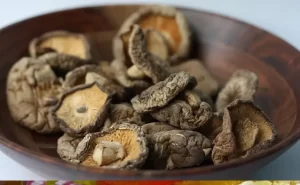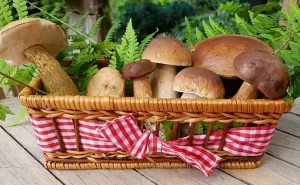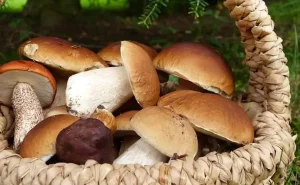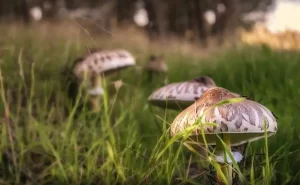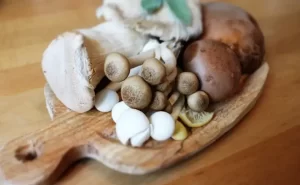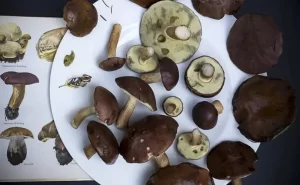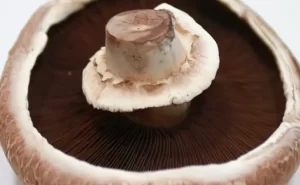Evidence-Based Benefits of Chaga Mushroom Tea: 3 Simple Recipes for Immune Support
Growing Popularity of Chaga Tea
More and more people are using chaga medicinal mushroom tea as a natural way to treat a wide range of health problems. You can find the Chaga mushroom, a type of fungus that grows on birch trees in cold places, in this tea. People in Asia, Europe, and Russia have used the Chaga plant as medicine for hundreds of years.
Antioxidant Properties
People think that chaga mushroom tea has antioxidants that can help protect the body from free radicals that can hurt it. Free radicals are chemicals that are not steady and can hurt cells and help diseases like cancer grow. Free radicals can hurt cells, but the vitamins in Chaga mushroom tea can help fight them.
Immune System Benefits
People also think that Chaga mushroom tea can help the immune system in addition to being an antioxidant. It has beta-glucans in it, which are complicated sugars that can help the immune system fight off infections and diseases.
Anti-Inflammatory Effects
Also, chaga mushroom tea might help lower inflammation in the body by blocking certain chemicals. Although inflammation is a normal reaction to damage or infection, long-term inflammation can make some diseases, like arthritis and heart disease, more likely to happen. By lowering inflammation, Chaga mushroom tea may help your health in general and stop these conditions from happening.
Natural Health Solution
In general, Chaga therapeutic mushroom tea is a natural and good way to keep your immune system strong and keep your body safe from free radical damage. The recipe is simple, and you can enjoy it as a warm drink at any time of the day. You should try it and see what changes it makes for your health and well-being.
Recipe Collection
Here are some ways to make Chaga healing mushroom tea:
Traditional Chaga Tea
Things used:
One cup of water
1 teaspoon of powdered chaga mushrooms
How to Do It:
Heat the water up.
Turn down the heat and add the chaga mushroom powder.
Let it cook for 10 to 15 minutes.
Pour the tea through a strainer and enjoy!
Chai-Infused Chaga
Things used:
One cup of water
1 teaspoon of powdered chaga mushrooms
About half a teaspoon of ground ginger
1/4 of a teaspoon of cinnamon powder
1/4 teaspoon of clove powder
1/4 of a teaspoon of black pepper
You can add honey or maple syrup to taste.
How to Do It:
Heat the water up.
Combine the ginger, cinnamon, cloves, chaga mushroom powder, and black pepper.
Turn down the heat and let it cook for 10 to 15 minutes.
If you want, you can add honey or maple sugar to the tea to make it taste sweeter.
Have fun!
Refreshing Mint Chaga
Things used:
One cup of water
1 teaspoon of powdered chaga mushrooms
One-fourth cup of lemon juice
Fourteen leaves of mint
You can add honey or maple syrup to taste.
How to Do It:
Heat the water up.
Place the chaga mushroom powder and lemon juice in the bowl.
Turn down the heat and let it cook for 10 to 15 minutes.
Put the mint leaves in the tea after straining it.
Wait 5 minutes before drinking the tea.
Add honey or maple syrup to taste to make it sweeter.
Have fun!
Recipe Variations
And those are just a few ideas for Chaga mushroom tea recipes. Try out a bunch of different tastes until you find the one you like best.
Brewing Tips
To make chaga tea, follow these steps:
For the best taste, use cold, fresh water.
If you brew the tea for too long, it will taste bitter.
It is important to strain the tea before drinking if you use chaga mushroom powder.
You can drink chaga tea hot or cold.
You can keep chaga tea in the fridge for up to three days.
Health Benefits Summary
Chaga tea is a tasty and good for you way to get the health benefits of chaga mushrooms. It has a lot of vitamins and other good things for you, and it may help your immune system, lower inflammation, and think more clearly.
References
- Kim YR. “Immunomodulatory Activity of the Water Extract from Medicinal Mushroom Inonotus obliquus.” Mycobiology. 2005;33(3):158-162.
- Glamočlija J, et al. “Chemical characterization and biological activity of Chaga (Inonotus obliquus), a medicinal “mushroom”.” Journal of Ethnopharmacology. 2015;162:323-332.
- Géry A, et al. “Chaga (Inonotus obliquus), a Future Potential Medicinal Fungus in Oncology? A Chemical Study and a Comparison of the Cytotoxicity Against Human Lung Adenocarcinoma Cells (A549) and Human Bronchial Epithelial Cells (BEAS-2B).” Integrative Cancer Therapies. 2018;17(3):832-843.
- Mishra SK, et al. “Orally administered aqueous extract of Inonotus obliquus ameliorates acute inflammation in dextran sulfate sodium (DSS)-induced colitis in mice.” Journal of Ethnopharmacology. 2012;143(2):524-532.
- Shashkina MY, et al. “Chemical composition and biological activity of chaga (review).” Pharmaceutical Chemistry Journal. 2006;40:560-568.




